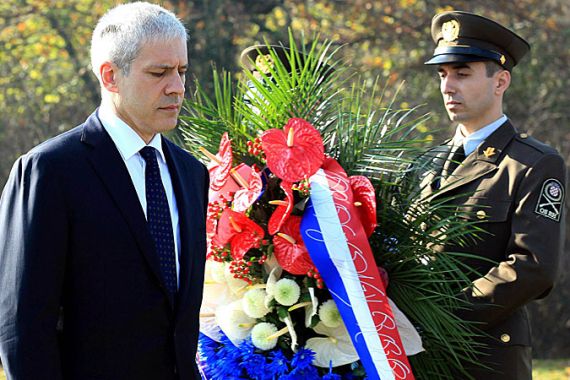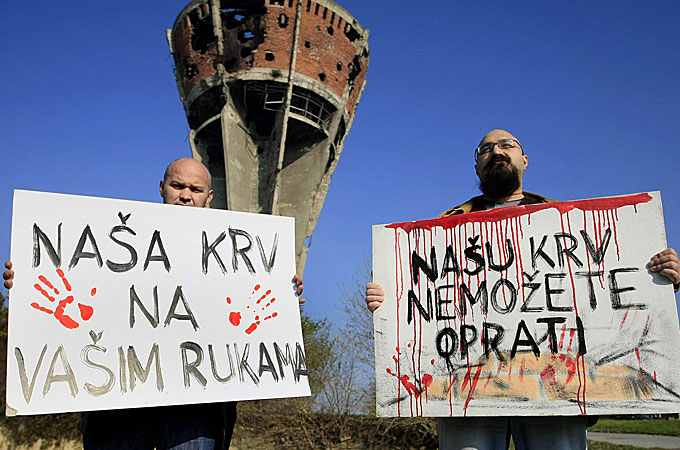Serb leader visits Croat mass grave
Boris Tadic apologises for a 1991 massacre in a symbolic step towards reconcilitation between the two nations.

 |
| Tadic’s visit has sparked small protests with some holding placards reading ‘our blood on your hands’ [AFP] |
Serbia’s president has apologised for a wartime massacre in Croatia and laid a wreath at the site in a symbolic step towards reconciliation between the two countries.
The remarks by Boris Tadic are the strongest yet by a Serbian leader in condemning its own wartime atrocities.
“I am here to pay respect to the victims and to express words of apology and regret,” he said at the Ovcara memorial on Thursday.
Tadic and Ivo Josipovic, his Croatian counterpart, visited the site of the 1991 Vukovar massacre, in which 200 Croats were taken from a local hospital and executed by Serb forces as they seized the town.
“By acknowledging the crime, by apologising and regretting, we are opening the way for forgiveness and reconciliation,” Tadic said.
His visit to the town is the first by a Serbian leader since the war. He is also laying a wreath for 18 Serbs killed by Croats in a nearby village.
Genocide accusations
The move is the clearest message yet of condemnation of all wartime crimes and the need for reconciliation between the two countries after the bloody war and subsequent mutual accusations over atrocities.
Josipovic said the two leaders were aware of their “responsibility for the future of our peoples and our countries”.
“We came here today to pay respect to the victims … to show that a different politics of peace and friendship are possible ,” he said.
However some in Croatia oppose Tadic’s visit, saying he should have first admitted that Serbs were aggressors in the war.
Several members of the small Croatian Party of Rights carried banners in Vukovar saying: “Apology, Not Regret” and “You’re Not Welcome” at a gathering in the town.
Serbia backed Croatian Serbs when they rebelled against the country’s independence from Yugoslavia, which triggered a war that left more than 10,000 people dead and entire communities expelled.
Four years later, Zagreb took back the territory in an offencive, followed by a period of killings and purges of Serbs by Croatians.
The two Balkan neighbours have since largely patched up relations, but tensions persist.
They have sued each other for genocide before The Hague-based World Court and nearly 2,400 people remain missing.